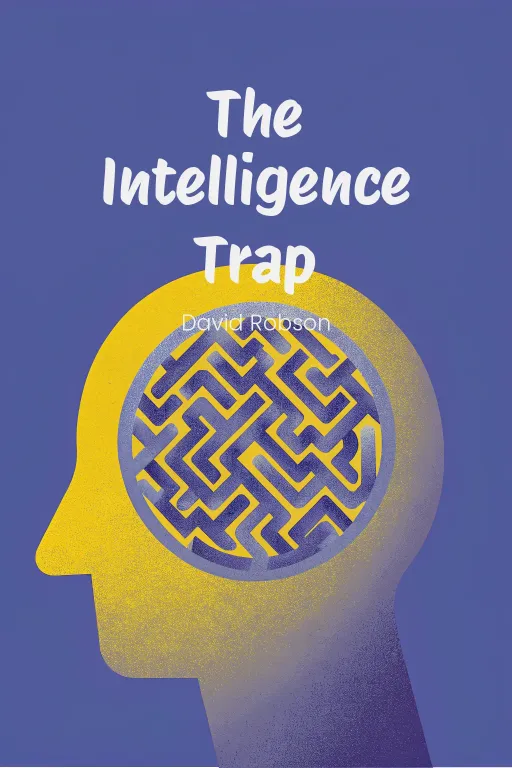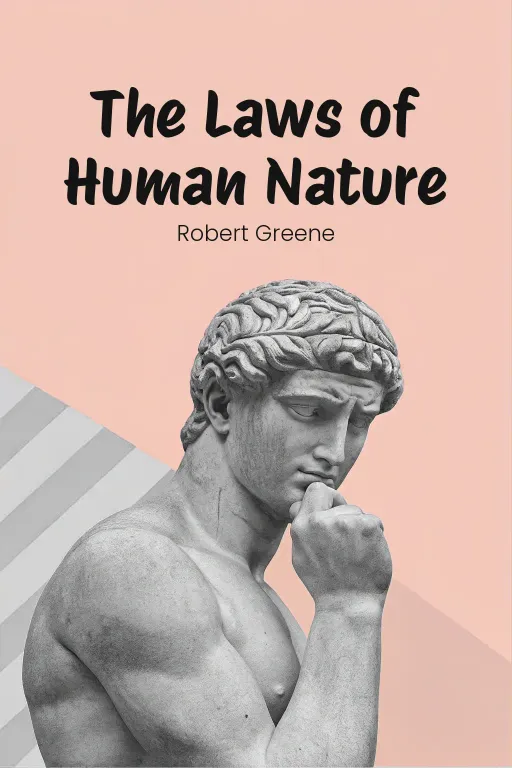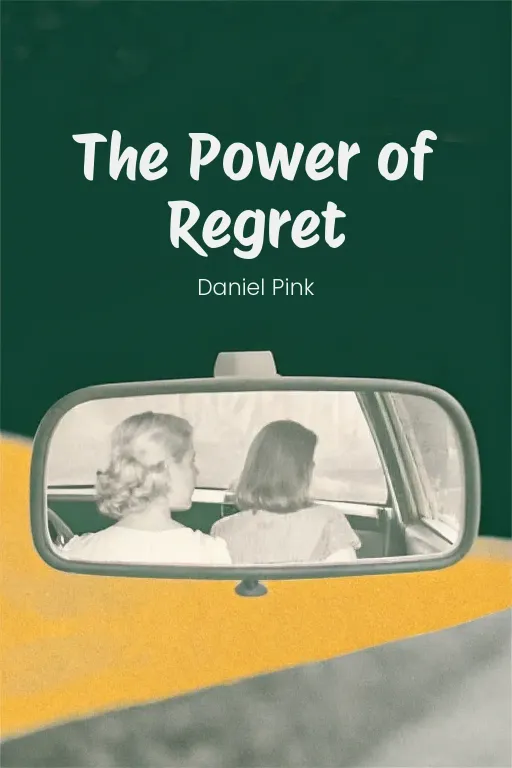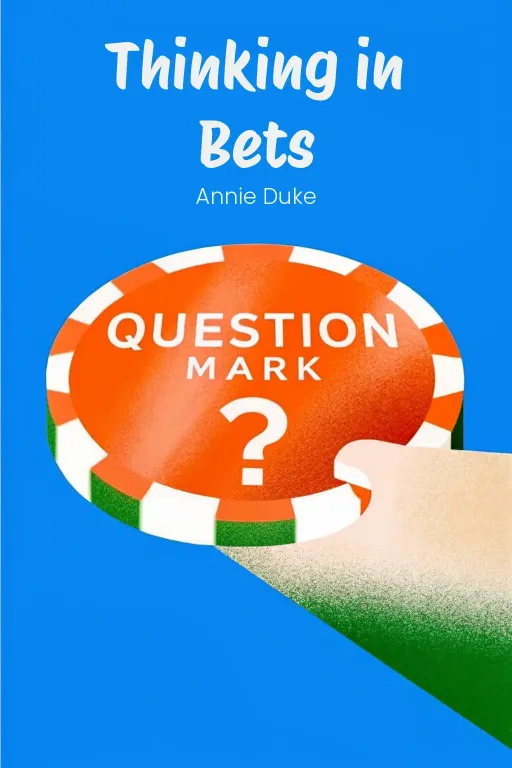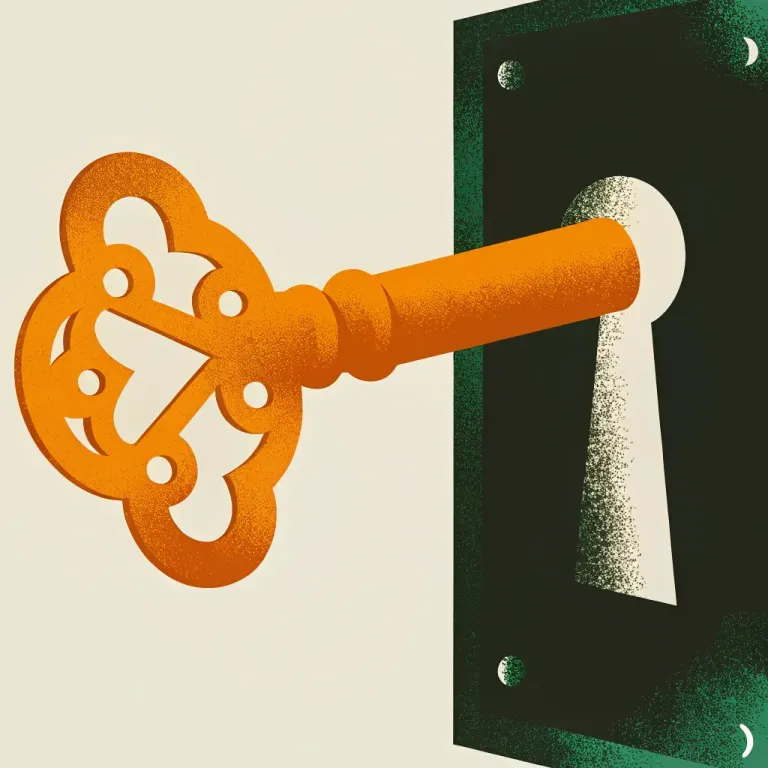
Regret: Your Annoying, But Helpful, Life Coach
Podcast by The Mindful Minute with Autumn and Rachel
How Looking Backward Moves us Forward
Introduction
Part 1
Autumn: Hey everyone, welcome back to the show! Rachel, let me ask you something. You ever lie awake at night, just replaying that one decision, wishing you could just rewind time and make a different choice? Or maybe just wondering, you know, about the road not taken? Rachel: Ah, you mean the infamous "regret spiral"? While I try to avoid them, I can't honestly say I'm a stranger to the old "what if" scenario. So, Autumn, are we resigning ourselves to an hour of self-flagellation, or is there a method to this madness? Autumn: Definitely a method! Today, we’re tackling The Power of Regret by Daniel H. Pink. He kind of throws the whole "no regrets" mantra out the window, arguing that regret is actually… well, it's a “good” thing. A tool, he says, for personal growth, better decision-making, and even stronger relationships. Rachel: Hold on. So instead of dodging regret like the plague, we're supposed to, what, embrace it? Sounds like a blast. What exactly does Pink mean by the "power of regret"? Autumn: Excellent question, Rachel! Pink boils it down to four core categories of regret – regrets about laying solid foundations, taking risks, making ethical lapses, and nurturing relationships. And, backed by global surveys and mountains of research, he provides strategies to really stare down regret, you know, by sharing it, changing how we perceive it, and extracting lessons from it. Rachel: So, he’s framing regret not as the villain, but as that one really annoying, but ultimately helpful, coach? I'm intrigued. What else is on the agenda today? Autumn: We’re going to start by digging into the science of why we even have regret, and what that says about how our brains operate. Then, we'll unpack those four regret categories – trust me; they reveal a “lot” about what we truly value. And finally, we’ll go over practical ways to transform that naggy coach – your regrets – into genuine resilience. Rachel: Alright, I'll bite. Regret might not be the sexiest self-help topic out there, but I’m willing to see if we can make it work for us. Let's do this.
The Nature and Psychology of Regret
Part 2
Autumn: Exactly, Rachel. So, to kick things off, let's talk about what regret actually is. It's so much more than just a passing feeling; it's this deeply embedded mechanism that helps us process decisions, extract lessons, and, essentially, make sense of our lives. Rachel: So, you're saying regret serves a purpose? It’s not just there to, you know, make us relive embarrassing moments, like that questionable fashion choice from your past? Autumn: Precisely. Regret is intricately tied to counterfactual thinking. It’s when our brains conjure up alternative versions of what happened. We imagine other outcomes—either better, or even worse. Rachel: Okay, better and worse scenarios, got it. What’s the difference, though? Autumn: That's where the "If Onlys" and "At Leasts" come in. "If Only" is when we imagine how much better things could have been, right? Like, "If only I had studied harder, I could have aced that exam." Ouch. Rachel: Right, that makes sense—classic silver medalist syndrome. Always feeling like you could have done just a little more to win. Autumn: Exactly! And Pink actually backs this up with research on Olympic medalists. Observers rated bronze medalists as visibly happier than silver medalists during ceremonies. The bronze winners focus on "At Least"—they landed on the podium. Rachel: Right, whereas the silver medalists are stuck thinking, "If only I had pushed harder, trained more…" That’s kind of wild—objectively achieving more but feeling worse. Autumn: It's the paradox of regret. The "At Leasts" help to soften the blow by focusing on how things could’ve been worse. Meanwhile, the "If Onlys" zero in on our mistakes, amplifying frustration. Rachel: But aren’t "If Onlys" what drive change? If you’re constantly thinking "At Least," wouldn't you get complacent? Autumn: Good point, Rachel! That’s precisely why both "If Onlys" and "At Leasts" are so important. "At Leasts" help with emotional recovery, while "If Onlys" provide the discomfort that drives growth. It’s this balance that makes regret valuable, even though it can be painful. Rachel: Okay, so regret can be constructive—as long as you don't wallow endlessly. What's the key to actually using regret productively? Is there a trick to it? Autumn: Great question. Okay, Pink emphasizes how reflecting on regret helps us learn behavioral lessons. Regret forces us to confront our values, priorities, and goals. Like, say you regret not standing up for yourself during a job negotiation. That might teach you to prepare and advocate more assertively next time, right? Rachel: I guess that’s when the pain pays off. Without regret, you might just keep coasting, not even realizing you need to improve or how to fix it. Autumn: Exactly! But reflection is just the first step. Pink also talks a lot about the power of reframing. Reframing involves reinterpreting a regret as a stepping stone rather than a failure. Rachel: Reframing... Turning "I failed to prepare for this investment, and it tanked" into "Now I know what questions to ask about finances." Autumn: That’s exactly reframing in action. It shifts the narrative from self-blame to lesson-learned. And, actually, regret is a very forward-looking emotion—it pushes us to imagine how we’ll act differently in the future. Rachel: So, it’s like regret gives you a punch in the gut, right? But then nudges you forward with some self-reflection. Okay, that makes me wonder… Is there a limit to regret? Can it become too much? Autumn: That’s a great question, Rachel. Pink touches on that, too. While regret’s natural and important, excessive rumination can negate all the benefits. When people get stuck, they lose sight of reframing or counterfactual thinking, the tools that help it become constructive. Rachel: Makes sense. Overthinking can make you paralyzed versus pushing you to act. So, it's a balance, right? You need to find that sweet spot so regret doesn’t take you down emotionally. Autumn: Exactly! Mastering the delicate interplay of reflecting, learning, and then moving forward is what makes regret such a central part of the human experience. By embracing its complexity, and using it effectively, it’s not just about looking back; it’s about creating a clearer, smarter path forward. Rachel: Okay, I’ll admit it--regret isn't just something to avoid. Before I start making a “regret résumé,” I need to know what Pink says about actually using this in real life.
The Four Core Types of Regret
Part 3
Autumn: Understanding the psychology behind regret really opens the door to seeing how it can actually be helpful. And this is where Daniel Pink takes things a step further, breaking regret down into four main types: foundation, boldness, moral, and connection. It's like, instead of just being overwhelmed by these messy feelings, we can actually organize them into clear, actionable categories. Think of it as turning a chaotic storm into a structured plan. Rachel: Right, so it’s not just this big, bad feeling, but something that actually has structure to it. By breaking it down like this, it makes it easier to see where we went wrong, right? And I guess it gives us some clues about how to fix things? Autumn: Exactly. These categories don't just point out our mistakes; they highlight what we truly value. Pink argues that the specific type of regret we carry speaks volumes about what's important to us. Let's start with foundation regrets. Rachel: Foundation… sounds pretty solid. So, what falls into “that” category? Autumn: Foundation regrets are all about stability or, more accurately, failing to build it. We're talking long-term stuff: financial planning, education, health, even those small daily habits that support a stable life. These regrets might seem minor at first, but they really hit hard later because they build up over time. Rachel: So, it's like a slow-burn type of regret, right? Like, not saving money, skipping the gym, or not getting enough sleep for years, and then wondering why your back and your bank account are a mess when you're older? Autumn: Exactly! One of the examples Pink shares is from someone who said, "I regret not saving money diligently ever since I started working." Decades of hard work, but they feel completely broke, and it's not from one bad decision, but from the accumulation of years of inaction. Rachel: Ouch, that's the real-life tragedy of compounding interest... or the lack of it. I can see how financial regrets like that can sting. But is it just about money, or does "foundation" cover other areas too? Autumn: It does. Education falls into this category as well. People often regret not taking their education seriously enough because it limits their career opportunities later on. There was one man who said he didn't take college seriously when he was younger, and now he's stuck in this job he feels he's outgrown but can't get out of. Rachel: Yeah, that one hits close to home for a lot of people. It's like that old story of the grasshopper and the ant – the grasshopper parties all summer, and then regret shows up with the winter. So, what does Pink suggest we do with this information? Is it supposed to make us feel even more guilty about not preparing? Autumn: Not at all. Pink frames foundation regrets as reminders that long-term stability comes from what we do every day. These regrets push us to focus on those seemingly small, fundamental behaviors that build toward a better future. Rachel: Okay, so we've laid the groundwork, literally. What's next? Autumn: Boldness regrets. And if foundation regrets are about “what we didn't prepare for”, these sting because of what we “failed to do”. Rachel: Aha, the "I should have just gone for it" regrets. Like, making a bold career move, chasing a dream, asking someone out… Autumn: Exactly. Pink calls them "opportunity regrets" because they arise when hesitation wins over action. There's a really powerful story he tells about a guy named Bruce who met a woman named Sandra on a train in Europe. They really connected, but he didn't pursue it, and decades later, he still wonders what their life together could have been like. Rachel: Wow. That's not just a missed opportunity; it's a whole other life that never happened, like sliding doors that never opened. I mean, who “hasn't” thought about the "what ifs" in a moment like that? Autumn: And that's the core issue with boldness regrets: it's not the failures we fear most, but more the chances we didn't take. One person in the survey said, "I regret not having the courage to be more bold earlier in my career." Rachel: Makes sense. It's safer to stay in your comfort zone until you look back and realize how suffocating it was. So, what makes these kinds of regrets so powerful? Autumn: Because they represent growth. People “want” to feel like they've pushed their limits, whether through adventures, relationships, or taking risks to achieve their goals. Missing out on those moments feels like missing the chance to become the person you could have been. Rachel: So, the regret here isn't about losing, it’s about not even playing the game. Encouraging, but also a little depressing. Autumn: It can be, but the great thing about regret is that it teaches us to seize future opportunities before they pass us by. And speaking of personal growth, moral regrets bring a different perspective, focusing not on external opportunities but on internal values. Rachel: Moral regrets—that’s where guilt really comes into play. Autumn: Unfortunately, yes. These regrets revolve around ethical lapses and decisions that violate our personal integrity. It could be dishonesty, betrayal, or even not speaking up when we should have. Rachel: So, the pain here isn’t just the external stuff—like losing trust or relationships—but also this deep sense of screwing yourself, right? Autumn: Exactly. Pink shares stories like Kaylyn's, who cheated early in her marriage and talks about the lifelong guilt it created. The lasting regret wasn’t just the relationship damage, but how it changed the way she saw herself. Rachel: It's like you carry that mistake as a scar on your identity. I imagine moral regrets hit even harder because they force you to confront who you “think” you are, or who you “thought” you were. Autumn: Precisely. Moral regrets challenge our sense of character, often resurfacing as a foundation for future decisions. One person put it simply: "When in doubt, do the right thing." Rachel: Not bad advice for avoiding soul-crushing regrets. That leaves us with connection regrets, right? Autumn: Correct. And they're probably the most common type, according to surveys worldwide. Connection regrets focus on relationships that have weakened, faded, or even ended—and the ache of “not” fixing them when you had the chance. Rachel: Like falling out with a best friend over something stupid and never reaching out after that? Autumn: Exactly. There's a story in the book about Cheryl, who lost touch with a close college friend. Looking back, she really regrets not reconnecting, realizing what she missed out on by letting things drift apart. Rachel: Is it just time that's the enemy, or are there emotional barriers too? Autumn: Both. Pink describes two subcategories here: closed-door regrets, where reconciliation isn't possible because of death or estrangement, and open-door regrets, where the relationship “could” be fixed, but overcoming the awkwardness feels too hard. Rachel: Wow, it's tough because it's not just the regret, but the fear of reaching out. Connection regrets seem really tied to our sense of belonging. Autumn: Absolutely. And they remind us to focus on relationships before it's too late to be vulnerable and choose courage over pride or procrastination. Connection regrets highlight how important human bonds are to our happiness and mental health. Rachel: So, to recap: foundation regrets hit us where stability falls apart, boldness regrets haunt us for what we “didn't” try, moral regrets eat at our feeling of being a good person, and connection regrets call us out for neglecting the people who matter. That's a wild range. Autumn: And the beauty is that these categories aren't just descriptions—they're diagnostic tools. They help us see the areas in our lives we need to improve. Pink's work shows that regret, when approached with clarity, is less about beating ourselves up and more about steering ourselves toward a life that lines up with what we value.
Strategies for Managing and Transforming Regret
Part 4
Autumn: So, with these regret categories defined, the conversation naturally flows toward how we actually “deal” with regret, right? Pink's got some really insightful tools on how to, you know, stop beating ourselves up and start seeing these regrets as growth opportunities. Rachel: Okay, hold on. So, we're not just supposed to sit around in our emotional panic rooms, yelling, "Why, oh why did I do that?!" The idea is to redirect that energy toward… what exactly? Is it about fixing the situation? Trying to forget it entirely? Autumn: It's more about fixing what you can, reframing what you can't, externalizing the burden, and definitely cutting yourself some slack. It’s a whole toolkit, really. Fundamentally, you're moving from feeling stuck to taking positive action. Pink lays out six strategies for doing just that: undoing mistakes, reframing them, self-disclosure, self-compassion, self-distancing, and anticipatory approaches. Rachel: Okay, six things, got it. Let's start with "undoing." What's Pink's take on that? Are we talking about time travel here, going back and hitting "delete" on bad decisions? Autumn: Well, in a way, yes. Undoing is about repairing the damage when you still can. Think of it as a do-over. Made a mistake? Apologize. Broke someone's trust? Rebuild that bridge. Pink even calls it hitting "Ctrl+Z on an existential keyboard." Rachel: Like, fixing a typo before it nukes your career in an email. I'm guessing it's not always that clear-cut, though, right? Autumn: Exactly. Undoing works best when the regret involves something actionable. Pink shares a story about someone regretting a huge argument, and they repaired the damage with a sincere apology. It was transformative—for their relationship and their own peace of mind. Rachel: So, "undoing" isn’t about miracles, then. More about damage control when you still have a shot. What if the regret is ancient history, though? Like, you can't exactly apologize for ditching that job interview five years ago. Autumn: That's when reframing comes in. If undoing is about fixing, reframing is about changing how you “interpret” the regret. Pink suggests searching for the "At Least" in any situation. It’s about finding the silver lining. Rachel: Right, like the bronze medalist thinking, "At least I didn't come in fourth." I'd imagine that's a lot harder when you're dealing with a major life regret. Autumn: It can be, for sure. But reframing shifts regret from a personal failing into something constructive. Say someone regrets not getting their dream job. Instead of wallowing, they could reframe it as an opportunity to develop skills that will open other doors down the line. You’re moving from blame to improvement. Rachel: So, reframing turns "What's wrong with me?" into "What can I learn from this?" Pretty smart… annoyingly optimistic, but smart. What's next on the list? Autumn: Next up is self-disclosure. Sharing your regrets with others. This could mean confiding in a friend, joining what Pink calls "regret circles," or just journaling. Externalizing regret creates clarity and connection. Rachel: Regret circles? That sounds either incredibly cathartic or a recipe for oversharing disasters. Autumn: Actually, they can be really powerful. Pink describes them as safe spaces where people share their regrets without judgment. Someone, for example, might be grieving over a missed connection with a friend who passed away. Sharing their story made them feel seen and less alone. Hearing other people's regrets reminds you that regret is universal—it's a normal part of being human. Rachel: Okay, fair enough. I can see how opening up could help – from blowing off steam to realizing, "Hey, I'm not the only one who's screwed things up." Plus, just putting it into words might take the edge off. Autumn: Exactly. Self-disclosure isn't just about feeling less isolated—it's about actually processing the regret and making room for something new. Rachel: But what about the folks who are hardcore self-critics? You know, the ones who treat regret like it's their full-time job? Autumn: For them, self-compassion is key. Pink argues that we should treat ourselves with the same kindness we'd give a friend. Because beating yourself up doesn't actually make you do better—it just wears you down. Rachel: No matter how much I'd like to channel my inner drill sergeant, self-compassion gets better results? Autumn: Yep. Pink explains that it’s about realizing that making mistakes is part of being human. Self-compassion lets you stop dwelling on the failure and start planning your next move. Research even shows it improves emotional regulation and mental health. Rachel: Okay, give me a concrete example. Otherwise, "be kind to yourself" sounds kind of abstract. Autumn: Let’s say someone regrets quitting their job without a plan. They've been beating themselves up, calling it a stupid decision. Self-compassion reframes that: maybe they realized they were burned out or needed to prioritize their well-being. Then, they can focus on what's next rather than being stuck on what went wrong. Rachel: So, instead of "I was reckless," it becomes "I did the best I could with what I knew at the time"—and that opens the door to better planning. Makes sense. And… let me guess, "self-distancing" takes that idea a step further? Autumn: Exactly. Self-distancing means stepping outside your immediate emotions to see the situation more objectively. One method Pink mentions is speaking about yourself in the third person—literally asking "What should Rachel do?" instead of "What should I do?" Rachel: Isn't that how cartoon villains talk? “Rachel demands answers!” Autumn: <Laughs> Ha! But it’s backed by neuroscience. In high-pressure situations, like decisions made during the 2014 Ebola scare, researchers found that using third-person language reduced emotional overwhelm and improved rational decision-making. Rachel: That makes sense. Letting someone else handle the problem can bring clarity, especially when it felt too personal before. How exactly is this helpful with past regrets, though? Autumn: It’s about shifting your focus. Instead of dwelling in emotional self-blame, self-distancing gives you just enough space to ask, "What advice would I give a friend in this situation?" It transforms personal pain into practical insight. Rachel: Alright, so far, regret's sounding like a really good but annoyingly strict coach. How do we avoid making those regret-inducing decisions in the first place? Autumn: I’m glad you asked. That’s where "anticipatory approaches" come in – strategies that help you imagine your future self looking back and asking, "Will I regret this?" It's all about aligning today's decisions with the values that matter most long-term. Rachel: Like Nobel realizing he'd rather be remembered for peace prizes than dynamite profits. That makes sense for big decisions, but what about the everyday stuff? Autumn: Pink uses the example of satisficers versus maximizers. Maximizers stress over making perfect choices, which ironically can lead to more regret if things don’t go as planned. Satisficers, on the other hand, pick what’s “good enough” and move on without endless second-guessing. They actually have higher satisfaction—and less regret—overall. Rachel: So, the lesson is, stop overthinking, trust your gut, and accept imperfection. Better to decide and move on than to freeze up, afraid of regret. Autumn: Absolutely. Anticipating regret isn’t just about avoiding the negative, it’s about clarifying what’s most important to you and shaping your decisions around that. Rachel: Okay, final verdict: Regret seems a lot more useful if you handle it the right way. Pink’s tools can really turn it into something constructive, not just an emotional trap. Autumn: And that's the beauty of it. By understanding regret's patterns, and using these strategies, we can start turning it into a guide for living intentionally and authentically.
Conclusion
Part 5
Autumn: Okay, so, let’s bring it all together. We've really dug into regret, haven't we? It's not just something to avoid, but a tool, “really”, for learning and growing. Daniel Pink gave us the lowdown on counterfactual thinking – those "If Onlys" and "At Leasts" – and how they can actually be super insightful. Rachel: Right, and we unpacked those four big categories of regret: foundation regrets – you know, the stability thing; boldness regrets – all those missed chances; moral regrets – when we didn’t live up to our own standards; and connection regrets – those relationships we let slide. Pretty much a reflection of what’s important to us, right? Autumn: Absolutely. And we talked about some concrete ways to deal with regret. Like, reframing it, being kind to yourself, and even thinking about what your future self would want. It helps you line up your choices with what you “really” value. Rachel: Exactly. So, regret's not this monster under the bed. It's more like… a slightly annoying personal trainer. Pushing you to get better, make adjustments, and evolve. Autumn: So, here’s a little challenge for everyone: instead of dodging those feelings, try to actually listen to them. What are they telling you? And how do they connect with what's “really” important to you? What's one tiny thing you can do today to turn a regret into something positive? Rachel: And seriously, don’t beat yourself up trying to live a “no regrets” life. It’s just not gonna happen. Embrace the chaos, learn from it, and keep moving. Autumn: Yeah! Because when you really listen to your regrets, they become a great reminder to live consciously, take chances, and “really” invest in the relationships that make you, you. Rachel: So, until next time, let's aim for fewer "If Onlys" and a whole lot more "At Leasts" and growth. Catch you all later!




